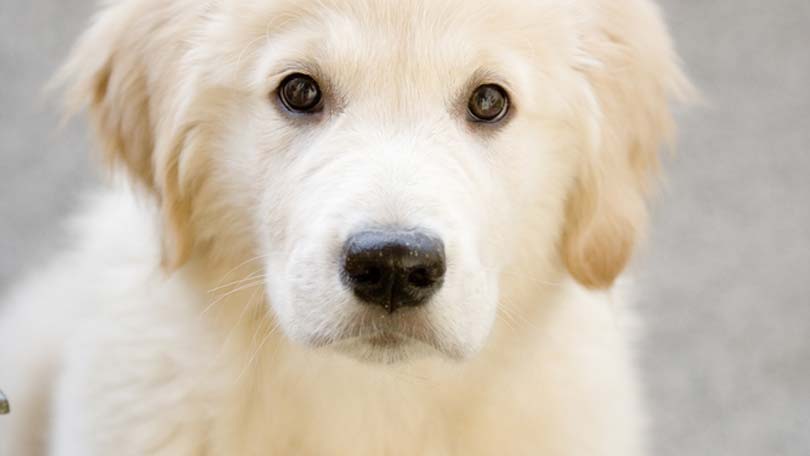
There are a variety of methods to accomplish the task of potty training a dog. Some methods work better than others with different dogs. However, when you are standing over the fourth puddle of the day and it’s not even noon, nothing can teach your dog fast enough. Despite your frustration, your annoyance, and your well earned right to feel as though you might have to take swift action if the new addition is going to permanently call your home his home, nothing good will come from the old fashioned method of rubbing his nose in it while you beat him senseless with a rolled up newspaper.
Beating your dog over his little accidents is a clear sign that you are not in control of the situation, both in the world of humans and that of canines. You want to educate him, not challenge him. He wants to make you happy and earn your approval.
If you have decided to crate train, then potty training will be much easier. After all, most dogs will not use their crate as a bathroom, and provided you take them outside right away when you let them out, he’ll get the message sooner rather than later. Be sure you reward him for his efforts. If he’s a puppy, you may have to carry him outside when you initially start the process. You’ll likely get excited bursts of trickles as he runs for the door, and if he’s particularly wound up, he may not make it at all.
Most people adopt a puppy at 8 weeks of age. While emotionally we believe this age is an appropriate time for the puppy to leave his mother, some breeders are realizing that 12 weeks seems to be better. At 8 weeks, there is still a lot of under-development happening in his little body, especially his bladder. Their bladders don’t develop to the point of maturation until about 12 to 16 weeks. Thus, even when crate training, accidents can happen. Keep your puppy’s age in mind before you get too aggravated. That would be the same as expecting your one and a half year old to learn to use the potty. A bit early due to physical development, not emotional readiness.
Whether you are crate training or paper training, don’t allow your not quite house broken pal to roam around the entire house. You will find that he will choose rooms that aren’t regularly used as his toilet. Keep him confined to where the family is. This not only allows someone to keep a gentle eye on his needs, but also allows him to understand that there is living going on in these rooms. Dogs don’t like to use their living space as a toilet. If you notice that one room seems to be getting less human use and more toilet use, block that room off as well. Sometimes we are unaware of our habits until there is a reason to study them.
Even if you have closed off most of the house to your dog’s access, when you leave the house he is going to need additional confinement. Whether you use a crate or not, if he is left to wander then he is left to his own devices. Dogs who are left to their own devices tend to get into trouble. Set up a place that you’ll know he’ll be comfortable (and nothing will be ruined if he messes up) and place a dog gate across the doorway. Don’t just close the door. He’s likely to scratch and claw and that will just ruin the door.
Set yourself up in a potty training a dog routine. When everyone wakes up in the morning, take the dog out, reward him. If he eats his meal in the morning, wait five minutes, and take the dog out, reward him. When he wakes up from his naps, take the dog out, reward him. Before you leave the house, take the dog out, reward him. Upon returning home, take the dog out, reward him.
Dog will usually need to go to the bathroom when they wake up, after a serious play time, and about five minutes after they eat. By setting yourself on a schedule that allows him to go as his body naturally would, your chances of success are much greater.
You little guy is going to have accidents. Consider them your accidents, not his. If he’s having accidents in the house, realize that you have either missed his cues or you broke from the schedule. Use a simple noise to correct him, like a low grumble growl that expresses your displeasure, and take him directly outside, even before you clean it up. If he does the right things out there, reward him despite your displeasure about what’s left for you inside. Hopefully, you have a second pair of hands that can clean it up while you’re outside with the pup.
Rewarding your dog for a job well done is the biggest key to getting them to understand what you want from them. Your expectations, regardless of their age, are new to them. No matter how much they wag their tail and slop you with kisses, if you can’t communicate your expectations, they will forever fail you.
Potty training a dog is simple, but not easy. Because we are an emotional species, we tend to allow our emotions become an interfering factor in our dog training. We get frustrated, and even sometimes, hurt and angry. After all, we’re giving them everything they need in life, so why can’t they just stop making messes on our homes? They will. As soon as they understand what it is you truly expect and accept your desires as their own. They just need your leadership.
